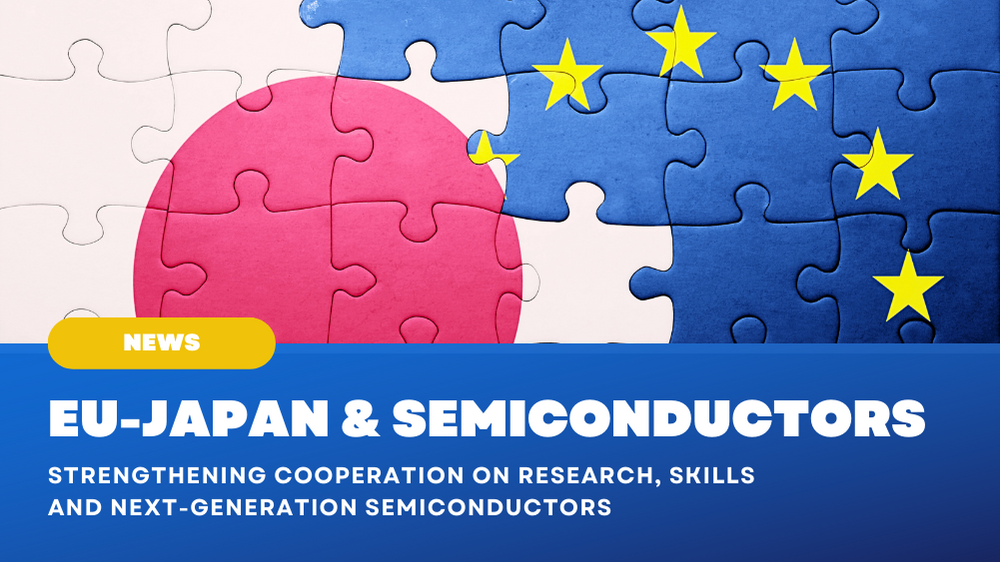
EU and Japan deepen cooperation on semiconductors
Following Thierry Breton's visit to Tokyo on 3 July, the EU will strengthen the cooperation on semiconductors with Japan. The European Commissioner for Internal Market and Japanese Industry Minister Yasutoshi Nishimura signed a MoU on semiconductors, which stipulates that Japan and the EU will closely cooperate on research and development of the next-generation semiconductors.
As the world’s powers increase efforts to strengthen the resilience of the semiconductors industry, cooperation becomes a key element to boost the capabilities in manufacturing high-end technologies. Both Japan and the EU have been particularly focused on ensuring the resilience of the semiconductors supply chain and establishing cooperation with like-minded partners.
During the visit to Tokyo on 3 July, the European Commissioner for Internal Market Thierry Breton highlighted the strategic importance of chips for economic security, and particularly for such sectors as defence, electronics, automotive industry. Furthermore, the Commissioner underlined the need to advance on the next-generation semiconductors.
“Like Europe, Japan has great ambitions in producing next-generation semiconductors. Chips below 2 nm will be strategic for AI, low-energy consumption technology and industry of the future.”1
The major outcome of the visit has been the MoU on semiconductors, which sets the foundation for the strengthening of the EU-Japan cooperation in monitoring, research and investment in the semiconductor sector. In particular, the MoU provides details on such future actions:
1. Early warning mechanism for the semiconductor supply chain
The EU and Japan plan to establish a joint early warning mechanism with specific points of contact. This will facilitate the exchange of information and help to prevent disruptions to the semiconductor supply chain.
2. Cooperation in research and development for semiconductors
The EU and Japan intend to establish in-depth cooperation on chips manufacturing through collaborative research programmes and regular meetings. Universities, research and technology organisations, key industry actors and other relevant stakeholders will play a major role.
3. Promotion of advanced skills development
The EU and Japan envisaged an exchange on skills development programmes. Furthermore, the two parties agreed for a joint workshop on skills for semiconductors to facilitate future skills-building initiatives.
4. Exchange of use cases of semiconductors applications
The EU and Japan agreed to promote exchange of use cases for cutting-edge semiconductors through dedicated workshops.
5. Transparency of subsidies
The MoU underlines that transparency of subsidies is key to ensuring an equal playing field and information about public support should be shared between the parties.
The signed MoU between the EU and Japan shows a positive development for the semiconductor sector. The envisaged actions for the monitoring and strengthening of the supply chain through cooperation on research, skills, and exchange of information is expected to play a beneficial role in fostering innovation and growth of the semiconductor industry.
1. https://www.eetimes.eu/eu-japan-sign-mou-on-semiconductors/